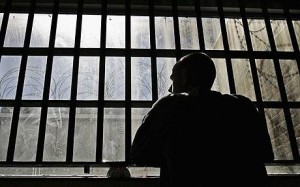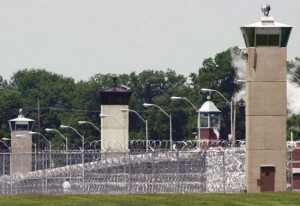On February 14, 2012, a fire broke out at the Comayagua prison about 55 miles north of Honduras’ capital, Tegucigalpa. Approximately 360 people were killed, mostly prisoners. It’s been recorded as the deadliest prison fire in a century. The U.S government, who has been on the scene investigating, has stated that it was accidental, and may have been caused by a match or cigarette. While accidental fires are not uncommon, what makes this story newsworthy is the subsequent discovery of the conditions of that jail. This substandard environment exacerbated the situation caused by the fire and ultimately made it difficult for the prisoners to  escape with their lives.
escape with their lives.
Prison conditions throughout the world are ghastly. It is well documented that globally, detainees find themselves paying for their crime in jails that are not fit for them to serve their sentence. Brutal rapes, the rampant spread of diseases, and inhumane living conditions are common and not secret. Then, we hear of atrocities like the fire in Honduras and wonder what the rights of prisoners are. Are they disregarded because they committed crimes? As human beings, are they not important enough to be afforded a safe and appropriate environment to serve out their prison terms? Where is the line between punishment and outright savagery?
I think we sometimes excuse these situations by stating that prisoners deserve to be living without the comforts enjoyed by the free citizen. And that as penance, it is fine for them to to live in substandard conditions. Despite this common misconception, in the United States, prisoners do not have full Constitutional rights, but they are protected from cruel and unusual punishment. In researching, I found that while their freedom is restricted, they are entitled to the following rights:
- To receive rations or meals
- To receive clothing, bedding, soap and medicine
- To exercise
- To medical treatment
- If a prisoner is female, to be kept separate from male prisoners
- Not to be assaulted by prison guards unless he/she has attempted to escape, been violent, or has disobeyed an order
- To make complaints to the Officer in Charge
A prisoner may also have the right, depending on the country:
- To work reasonable hours
- To be free from unreasonable searches at night time
- To correspond with family and/or receive visitors
- To notify family members when sick
While this looks like a pretty comprehensive list, examining the situation in Honduras I found that the failures that led to the massive loss of life were not listed above. Here are some problems that need to be addressed:
Lack of Personnel: There were six guards supervising 852 prisoners the night of the fire at the prison. Prisoners should be able to have the appropriate number of staff to supervise them as well as ensure their personal safety.
Overcrowding: A government report this month said the prison’s capacity was 500, there were 852 inmates living in the facility. Diseases spread faster in situations where prisoners are forced into cramped spaces. Violence also escalates due to the increase in people and tensions caused by the physical limitations and lack of personal space.
Delays in the Process: More than half of the 852 inmates crowded inside were awaiting trial. Some had yet to be charged. There should be a time frame for each phase of the legal process to ensure all the stakeholders (victim, perpetrators and other parties) are aware of their rights and their part in the process.
 On February 20, 2012, hundreds gathered outside San Quentin State Prison, one of the United States most notorious criminal institutions. Around 600 demonstrators, including members of the Occupy movement were protesting peacefully. The crowd which included Sara Shourd, Shane Bauer and Josh Fattal, who served time in an Iranian prison after being arrested in 2009, was calling for a number of reforms.
On February 20, 2012, hundreds gathered outside San Quentin State Prison, one of the United States most notorious criminal institutions. Around 600 demonstrators, including members of the Occupy movement were protesting peacefully. The crowd which included Sara Shourd, Shane Bauer and Josh Fattal, who served time in an Iranian prison after being arrested in 2009, was calling for a number of reforms.
Normally, rights movements are created to give a vulnerable populations the same opportunity as the status quo. Fighting for women’s rights, those of LGBT, children, victim or immigrant populations, seems like a legitimate cause. However, prisoners are also vulnerable to abuse at the hands of other prisoners and due to failures in the system. Despite our personal beliefs about the crimes they have committed, we cannot forget that they are human beings and entitled to some basic rights. Reform is needed to ensure that those rights are protected and their basic needs met.


